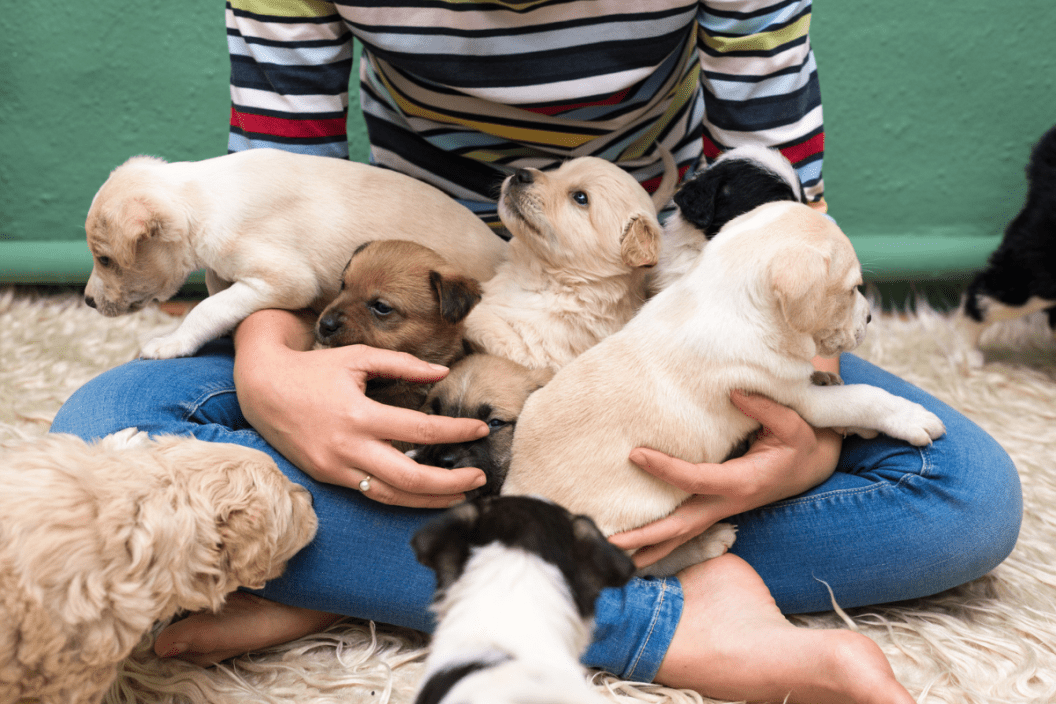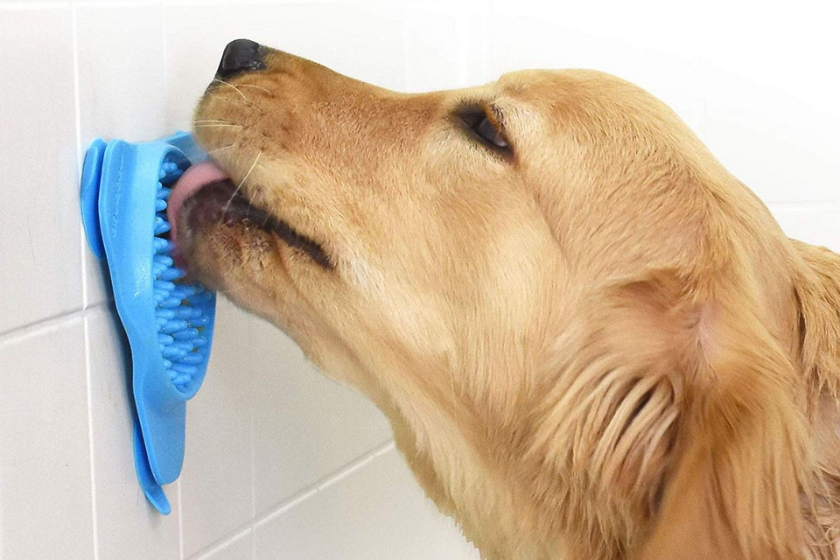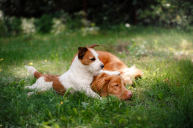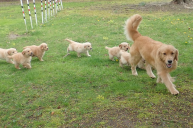The first week with a new puppy can be such a fun experience, but it also requires lots of patience and training. Imagine this: Your family is so excited as you pick up your brand-new puppy. At eight weeks old, you may think that they're simply a tiny ball of fur that squeaks and licks and will bring nothing but love and fun to your home. While that's absolutely true, there may be some things that you didn't foresee during your first week with a new puppy: the crying and howling all the way home, the utter demolishing of furniture and toys, and the frequent accidents on your carpet.
With all that joy comes a ton of responsibility, but until you have a puppy for the first time, you may not be aware of how much time and energy they'll require. It's key to know what's ahead even before you pick up your pup and set yourself up for success. That first week at home is super important since the puppy will be bonding with their new family and learning the ropes. We asked Mikkel Becker, certified trainer, dog behavior counselor, and lead animal trainer for Fear Free, for her best advice on how to navigate the first week with a puppy. Read on for her best tips for new dog owners!
Set Up a Puppy-Proofed Area
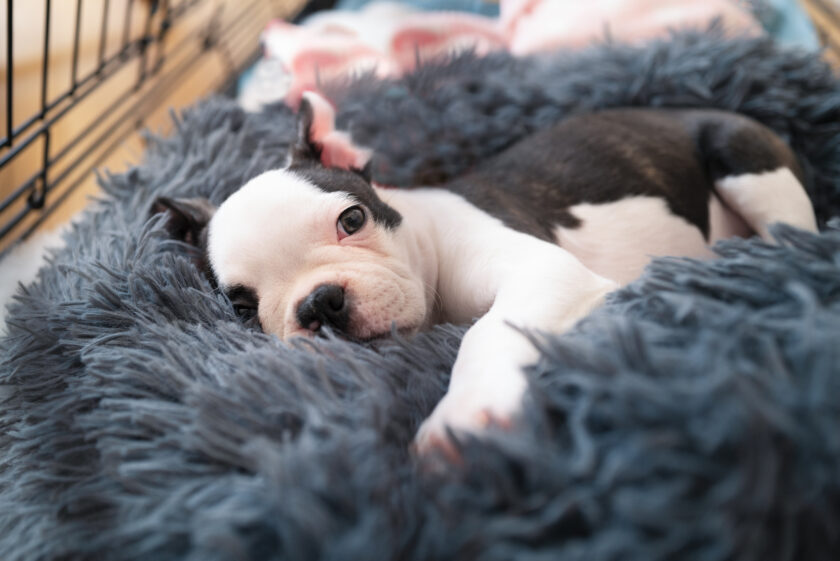
Before the puppy arrives, you'll want to puppy-proof an area that's just for them. Becker says that this can include a play area or a crate.
"Only open up their space gradually. This prevents them from chewing things that are off-limits or struggling with their potty training," she explains. "You can use a play pen, a crate, or a baby gate."
Have Patience and Compassion

Becker stresses the importance of remembering that the first week is a period of adjustment for you and the puppy, and includes "a lot of figuring each other out and navigating this new relationship." If you're a first-time dog owner, you may be very much out of your element.
You can't assume that the puppy will understand what you believe are common-sense rules, like not peeing on furniture or chewing everything in sight, because they often don't. They may also be used to towels or puppy pads for peeing, which can feel similar to carpet.
"For the puppy, they are being transported from being around their littermates or their mom, whether they were at a shelter or a breeder," Becker says. "And now they're with a new pet parent in a new home. It's so important to redirect puppies away from undesirable behaviors and items while understanding their need to be curious and explore. They are just doing what a puppy does, so we need to redirect in a compassionate way with positive reinforcement for behaviors we do want to see."
When the puppy completes a desirable behavior, you can mark the behavior with the word "yes" and a treat.
Start Potty Training Immediately
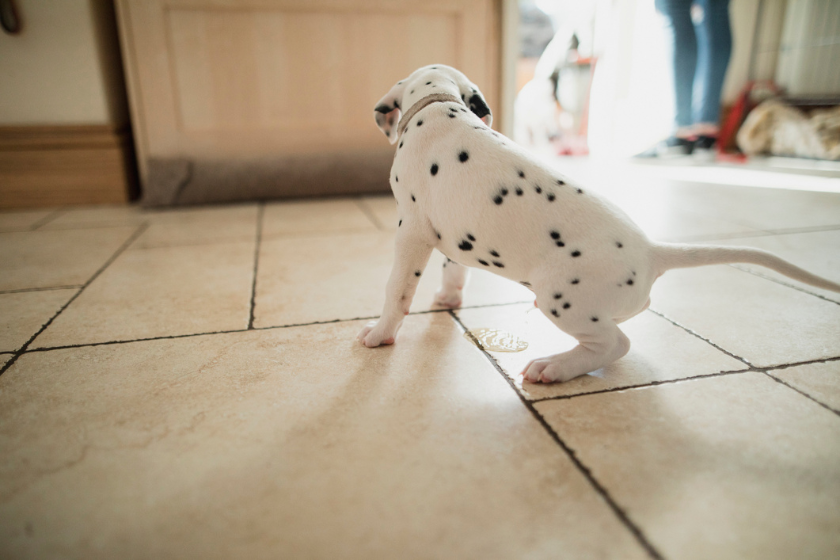
Potty-training should start on day one when bringing a puppy home.
"Take them outside right away for peeing—don't even bother with the middle step of continuing the puppy pads," Becker says.""Be ready to reward that with good-quality treats or a portion of their food."
Make Bath Time Less Scary
Becker says that what she calls "slip-and-scare moments" can turn a puppy's first bath into a frightening situation. "Slippery equals scary!" she says. "A pet's sense of balance is essential for their physical and emotional well-being." This is where a grippy bath mat comes in. In a pinch, Becker says that you could use a thick towel to add a bit of stability during the bath.
Keep Puppy Near You
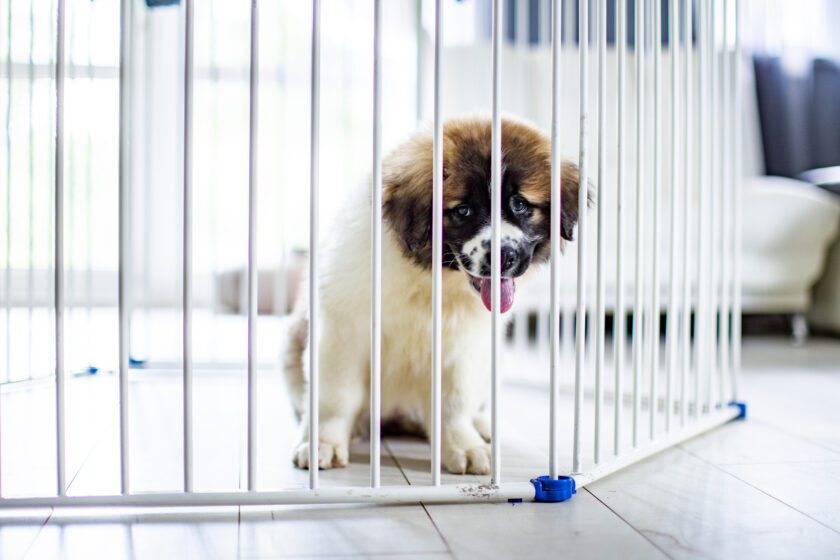
For at least the first week, the puppy should never be left alone, even if they're secure in a crate. It can be very calming and reassuring for them to be near you at all times and can help form bonds as well.
"Put the crate right in your room at first so they aren't suddenly in a brand-new space by themselves," Becker advises. If that's not possible, you could consider sleeping on the couch or wherever you'll be keeping your puppy's crate. "Even if you don't plan to always have them sleep in a crate, it is important to teach this level of independence early on," she says. This is something the puppy can remember when they are finally left alone in the crate.
Prevent Pulling During Walks
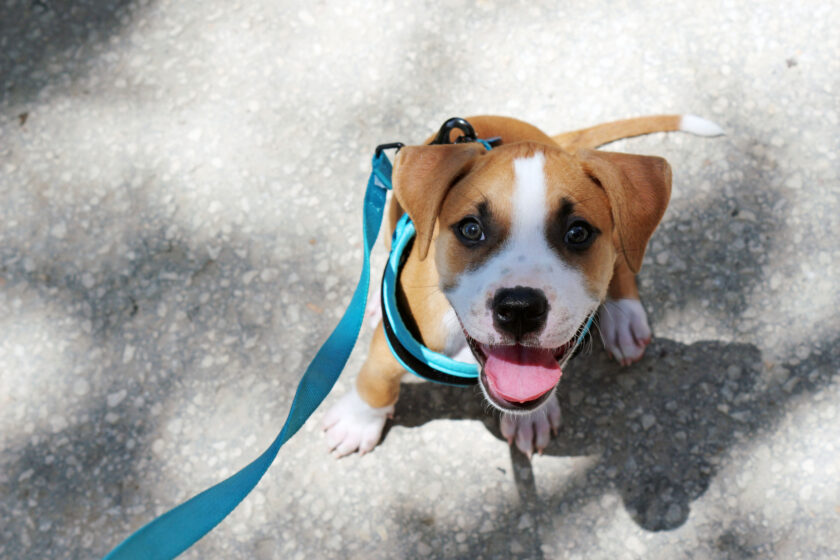
Many puppies tend to pull with enthusiasm during their first walks, especially as they learn to walk on a leash for perhaps the first time. Becker says that if you find that your puppy is pulling, the best thing she recommends is a high-quality harness, which can help prevent pulling.
Distract the Puppy
For little pups, things like grooming, nail-clipping, ear-cleaning, and applying eye drops can be downright terrifying since it's something new that they're not used to. For these situations, Becker recommends the Aquapaw Slow Treater Lick Mat, with suction cups that can be placed all over the house, in the bathtub or the side of a kitchen counter, for example. You can fill it with treats like peanut butter, meat-based baby food, fat-free Greek yogurt, or soft cheese and distract them while you're doing an unpleasant task.
Redirect Chewing
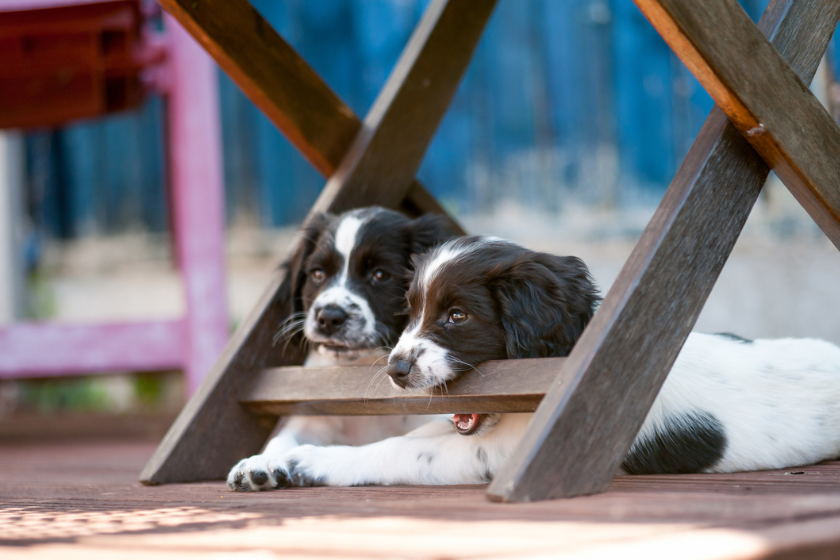
If you have a puppy, there's a very good chance that they'll be chewing—a lot. Let's be honest, they'll probably try to gnaw on everything in sight. To redirect inappropriate chewing, be ready with a chew treat that they'll enjoy more than that carpet they're trying to destroy. Becker is partial to cow's ears or lamb's ears, which are not as hard as antlers, as they tend to cause teeth breakage. Bully sticks are also a highly digestible option that will keep your pup busy for hours. "Also, any food puzzle is going to help with this behavior," she says. Brain games will tire your dog out more than any amount of physical exercise!
Never Scold or Punish
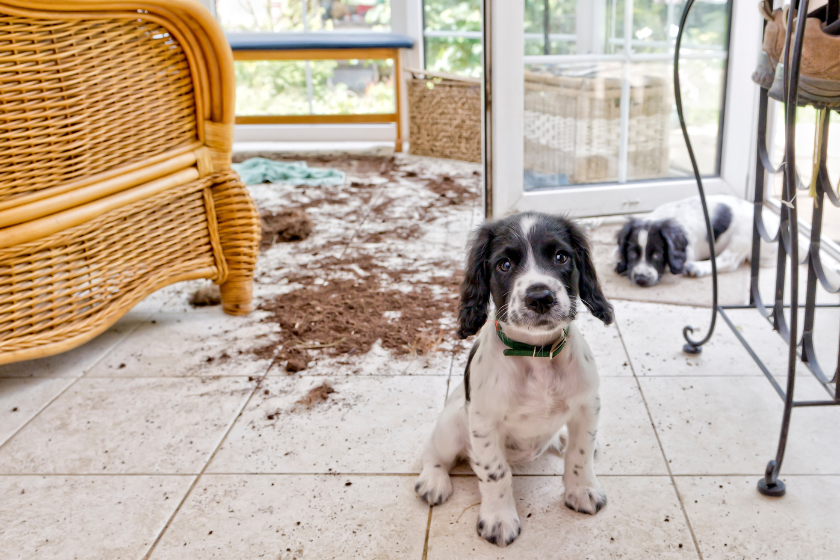
"Never resort to scolding or using physical punishment as a first choice," Becker says. "This includes 'rubbing their nose in it.' Puppies do not know the rules, and they are simply curious about the world and trying their best to understand what you want from them." Using physical punishment is one of the worst things pet parents can do. Instead, reward the behaviors you do want to see and make sure they have plenty of opportunities for enrichment, such as different types of toys, a space to dig, etc.
Create a Comforting Environment
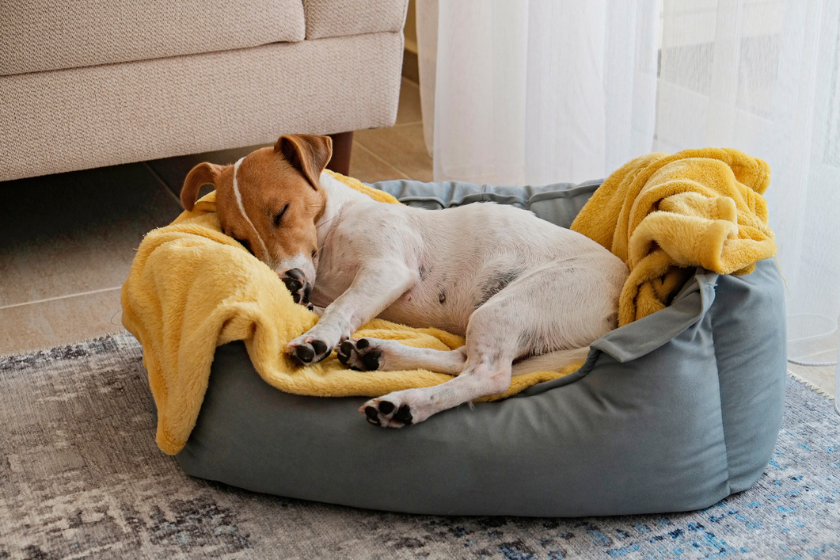
Since the puppy will naturally feel stressed or anxious about being in a new space (they were used to snuggling right next to their mom or littermates, after all), strive to make it a comfortable environment for the little one.
"The home can feel lonely and empty at first," Becker says. "I would suggest getting a warm towel or soft comfort toy for them, as well as some calming sounds or gentle music playing in their safe area. Put them somewhere they can be relaxed, warm, and comfortable, even if it's in their crate."
Do you have a new puppy? Show us photos on the Wide Open Pets Facebook page!
READ MORE: When Water Fills Puppy's Hole in the Sand His Reaction is Priceless
